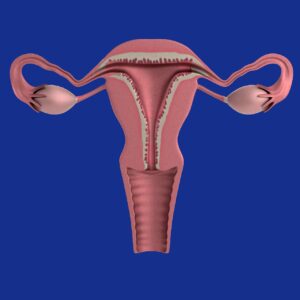Discover Your Optimal Health the Path to Well being– In today’s fast-paced world, where we often find ourselves juggling multiple responsibilities, it’s easy to neglect our health. However, prioritizing our well-being is crucial for leading a fulfilling and vibrant life. Optimal health encompasses more than just the absence of illness; it’s about achieving a state of physical, mental, and emotional well-being. In this article, we will explore various aspects of optimal health and provide practical tips to help you discover and maintain your own optimal health.
Understanding Optimal Health
Optimal health is a holistic concept that involves achieving a harmonious balance between different areas of our lives. It encompasses physical fitness, mental well-being, emotional stability, and a sense of purpose. It is not merely the absence of disease but rather the proactive pursuit of a healthy lifestyle. By understanding the key components of optimal health, we can make informed choices to improve our overall well-being.
The Importance of Nutrition
Proper nutrition forms the foundation of optimal health. Consuming a well-balanced diet rich in fruits, vegetables, lean proteins, whole grains, and healthy fats provides our bodies with essential nutrients, vitamins, and minerals. A healthy diet helps maintain a healthy weight, boosts our immune system, and reduces the risk of chronic diseases such as heart disease, diabetes, and certain cancers. It is important to prioritize whole foods and minimize the intake of processed and sugary foods.
Regular Physical Activity
Regular physical activity is vital for optimal health. Engaging in exercises, such as cardio workouts, strength training, and flexibility exercises, helps maintain a healthy weight, strengthens muscles and bones, improves cardiovascular health, and enhances overall mood and mental well-being. Aim for at least 150 minutes of moderate-intensity aerobic activity or 75 minutes of vigorous-intensity aerobic activity every week, along with muscle-strengthening activities twice a week.
The Role of Mental Well-being
Mental well-being is essential for achieving optimal health. It involves taking care of our emotional and psychological state. Practice stress management techniques such as meditation, deep breathing exercises, and mindfulness to reduce anxiety and promote a sense of calmness. Engage in activities that bring you joy and fulfillment, such as hobbies, spending time with loved ones, and pursuing personal interests. Prioritize self-care and seek support if needed.
Quality Sleep for a Healthy Body
Adequate sleep is often overlooked but plays a vital role in maintaining optimal health. During sleep, our bodies repair and rejuvenate themselves, boosting our immune system, improving cognitive function, and supporting overall well-being. Aim for 7-9 hours of quality sleep each night by establishing a consistent sleep schedule, creating a relaxing bedtime routine, and ensuring a comfortable sleep environment.
Stress Management Techniques
Stress can have a detrimental impact on our health if left unaddressed. It is important to develop effective stress management techniques to promote optimal health. Find healthy outlets to relieve stress, such as exercise, meditation, spending time in nature, or engaging in creative activities. Practice time management and prioritize self-care activities. Remember, it’s okay to say no and delegate tasks when necessary.
Building Strong Relationships
Social connections and healthy relationships are fundamental to our well-being. Surround yourself with positive and supportive individuals who uplift and inspire you. Nurture your relationships by actively listening, communicating effectively, and spending quality time together. Engaging in meaningful connections fosters a sense of belonging and promotes emotional well-being.
The Power of Positive Thinking
Positive thinking has a profound impact on our overall health. Cultivate a positive mindset by focusing on gratitude, affirmations, and self-compassion. Practice reframing negative thoughts into positive ones and seek opportunities for personal growth and learning. Embracing positivity not only enhances mental well-being but also positively influences physical health.
Embracing a Balanced Lifestyle
Striving for a balanced lifestyle is key to optimal health. It involves finding a harmonious equilibrium between work, personal life, relationships, and self-care. Set realistic goals, prioritize activities that bring you joy and fulfillment, and create boundaries to prevent burnout. Remember to allocate time for relaxation, hobbies, and self-reflection.
Avoiding Harmful Habits
To achieve optimal health, it is crucial to avoid harmful habits that can undermine our well-being. Limit the consumption of alcohol and avoid tobacco and recreational drug use. Minimize exposure to environmental toxins and pollutants. Prioritize safety measures such as wearing seat belts, practicing safe sex, and following recommended guidelines for vaccinations.
Seeking Professional Guidance
If you’re unsure where to begin or need additional support in your journey towards optimal health, consider seeking professional guidance. Consult with healthcare providers, registered dietitians, personal trainers, or mental health professionals who can provide expert advice tailored to your specific needs. They can offer personalized recommendations and support to help you make informed decisions.
Conclusion
Discovering and maintaining optimal health is a lifelong journey that requires commitment and mindful choices. By prioritizing nutrition, regular physical activity, mental well-being, quality sleep, stress management, building strong relationships, embracing positivity, and adopting a balanced lifestyle while avoiding harmful habits, you can unlock your full potential for a healthy and fulfilling life. Remember, small steps towards change can lead to significant improvements in your overall well-being.
FAQs
Q1: How can I improve my nutrition for optimal health?
A: Focus on consuming a well-balanced diet rich in fruits, vegetables, lean proteins, whole grains, and healthy fats. Minimize processed and sugary foods.
Q2: What are some effective stress management techniques?
A: Engage in activities like meditation, deep breathing exercises, mindfulness, exercise, and pursuing hobbies that bring you joy.
Q3: How much sleep do I need for optimal health?
A: Aim for 7-9 hours of quality sleep each night by establishing a consistent sleep schedule and creating a relaxing bedtime routine.
Q4: Why are social connections important for optimal health?
A: Social connections foster a sense of belonging, emotional well-being, and provide support during challenging times.
Q5: When should I seek professional guidance for my health?
A: If you’re unsure where to begin or need expert advice tailored to your specific needs, consider consulting healthcare professionals, registered dietitians, or mental health professionals.




